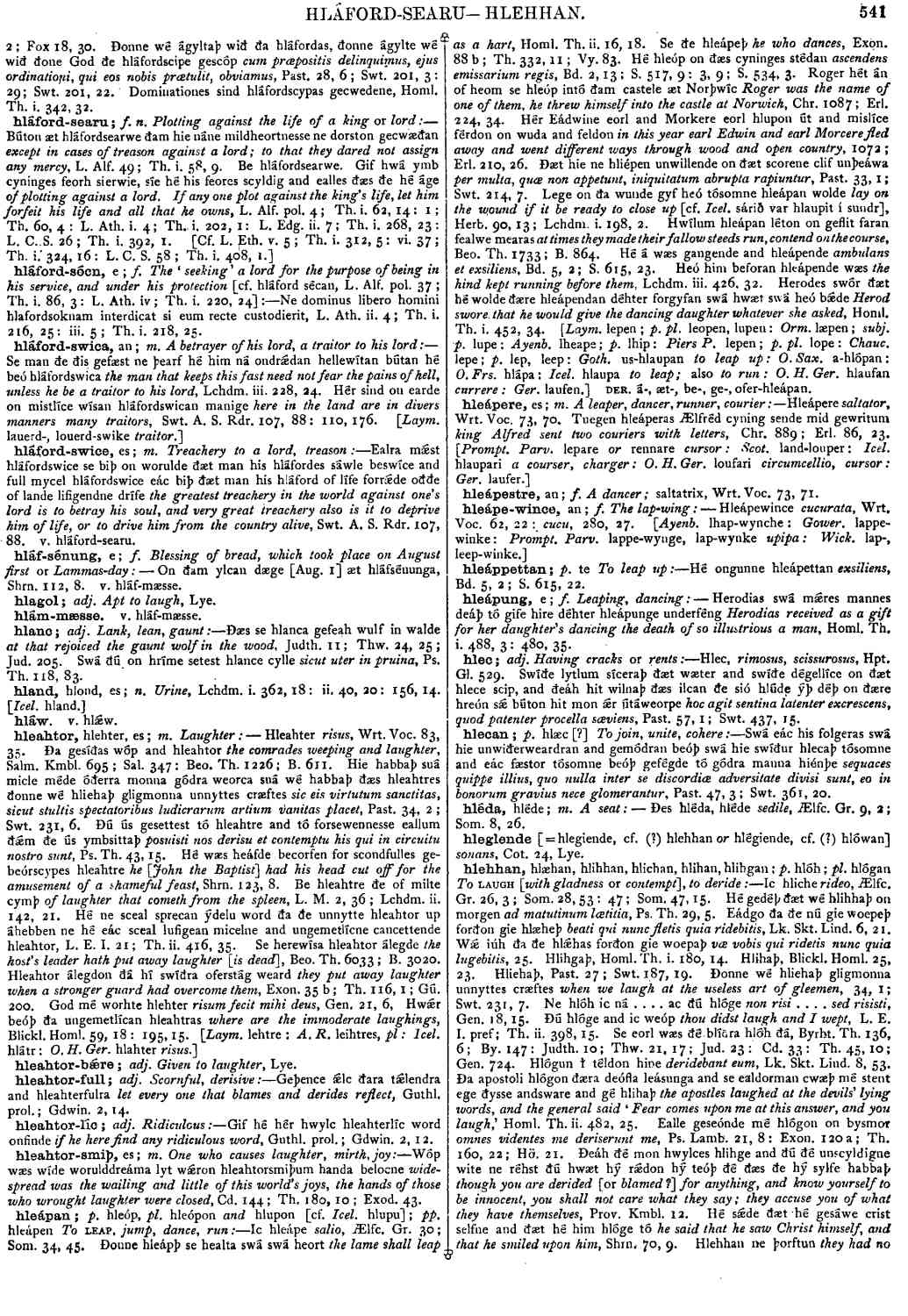hleahtor
- noun [ masculine ]
-
Hleahter
risus,
- Wrt. Voc. 83, 35.
-
Ða gesíðas wóp and hleahtor
the comrades weeping and laughter,
- Salm. Kmbl. 695; Sal. 347: Beo. Th. 1226; B. 611.
-
Hie habbaþ suá micle méde óðerra monna gódra weorca suá wé habbaþ ðæs hleahtres ðonne wé hliehaþ gligmonna unnyttes cræftes
sic eis virtutum sanctitas, sicut stultis spectatoribus ludicrarum artium valutas placet,
- Past. 34, 2; Swt. 231, 6.
-
Ðú ús gesettest tó hleahtre and tó forsewennesse eallum ðǽm ðe ús ymbsittaþ
posuisti nos derisu et contemptu his qui in circuitu nostro sunt,
- Ps. Th. 43, 15.
-
Hé wæs heáfde becorfen for scondfulles gebeórscypes hleahtre
he [John the Baptist] had his head cut off for the amusement of a shameful feast,
- Shrn. 123, 8.
-
Be hleahtre ðe of milte cymþ
of laughter that cometh from the spleen,
- L. M. 2, 36; Lchdm. ii. 142, 21.
-
Hé ne sceal sprecan ýdelu word ða ðe unnytte hleahtor up áhebben ne hé eác sceal lufigean micelne and ungemetlícne cancettende hleahtor,
- L. E. I. 21; Th. ii. 416, 35.
-
Se herewísa hleahtor álegde
the host's leader hath put away laughter [is dead ],
- Beo. Th. 6033; B. 3020.
-
Hleahtor álegdon dá hí swíðra oferstág weard
they put away laughter when a stronger guard had overcome them,
- Exon. 35 b; Th. 116, 1; Gú. 200.
-
God mé worhte hlehter risum fecit mihi deus, Gen. 21, 6, Hwǽr beóþ ða ungemetlícan hleahtras
where are the immoderate laughings,
- Blickl. Homl. 59, 18: 195, 15.
Bosworth, Joseph. “hleahtor.” In An Anglo-Saxon Dictionary Online, edited by Thomas Northcote Toller, Christ Sean, and Ondřej Tichy. Prague: Faculty of Arts, Charles University, 2014. https://bosworthtoller.com/19195.
Checked: 0